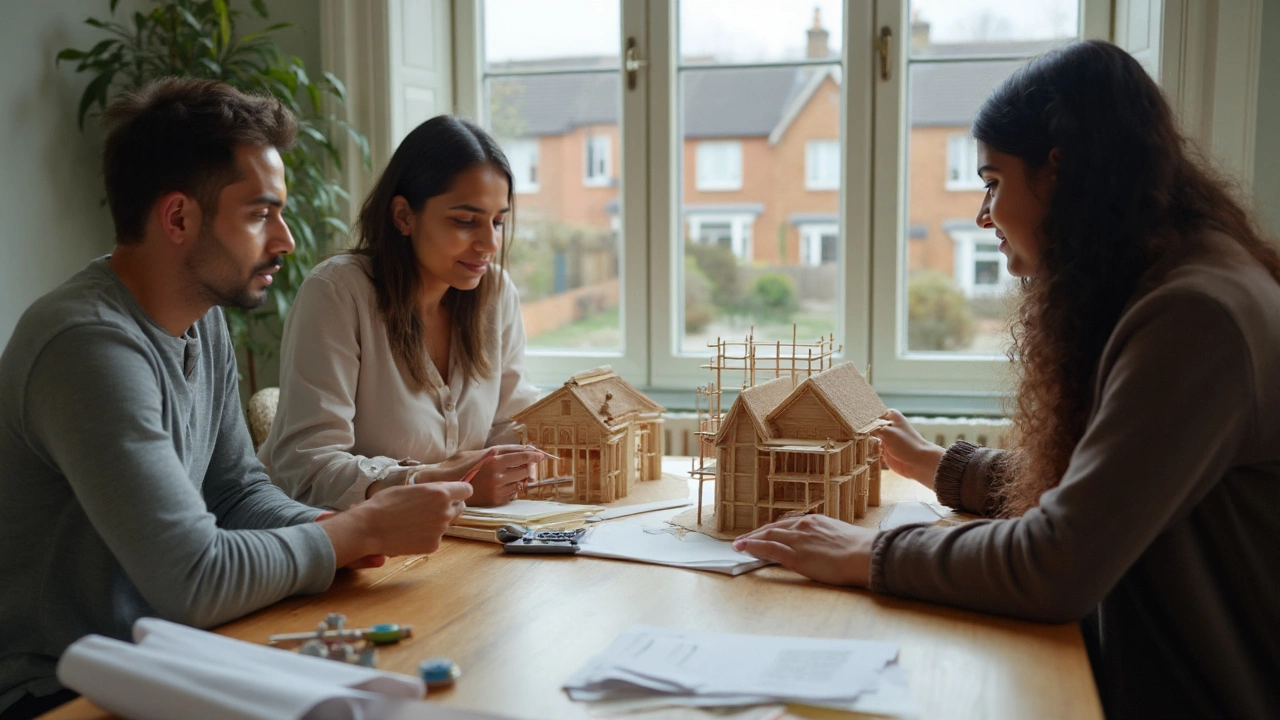UK House Extension Cost 2025: What You Really Need to Know
When you’re planning a UK house extension, a structural addition to an existing home that increases usable space without moving. Also known as home extension, it’s one of the most common ways UK homeowners gain extra room without relocating. But costs aren’t what they used to be. In 2025, inflation, labor shortages, and tighter building regulations have reshaped the price tag. A simple single-story extension now starts at £30,000—not £20,000 like five years ago. And if you’re adding a second floor or knocking through to the garden, you’re looking at £50,000 to £80,000 easily.
What drives those numbers? Construction cost UK, the total expense of building or modifying a residential structure, including materials, labor, permits, and professional fees. It’s not just bricks and mortar. Permits alone can cost £1,500–£3,000 depending on your local council. Then there’s the architect—most extensions need plans signed off by a professional. And don’t forget the structural engineer. If you’re removing load-bearing walls, that’s another £800–£1,500. The building regulations UK, the legal standards for safety, energy efficiency, and accessibility in home construction. have gotten stricter too. Insulation requirements, window specs, and ventilation rules now add 10–15% to material costs.
And labor? It’s the biggest wild card. A good bricklayer now charges £250–£350 a day, up from £180 in 2020. Plumbers and electricians are booked out months ahead. If you want your extension done in under six months, you’ll pay a premium. Rush jobs cost 20% more. But if you’re patient and plan ahead, you can save by buying materials in bulk or doing minor prep work yourself—like clearing the garden or removing old fixtures.
Some people think a loft conversion is cheaper. It’s not always true. A loft might cost less upfront, but if your roof structure needs reinforcing, or you need new stairs, the price jumps fast. A side-return extension often gives you more usable space for less. A rear extension? That’s the most popular—and usually the most cost-effective—if your house has a decent-sized garden.
And what about hidden costs? Survey fees, temporary accommodation if you’re living elsewhere during work, waste removal, and even landscaping after the build. One homeowner in Manchester spent £12,000 on paving and fencing after her £45,000 extension was done. That wasn’t in the original quote.
There’s no single answer to "how much does a house extension cost?"—it depends on size, location, materials, and how much you’re willing to DIY. But in 2025, the rule of thumb is this: if you’re planning to extend, budget at least £1,800 per square meter. For a 20-square-meter extension, that’s £36,000 before you even pick the tiles.
Below, you’ll find real breakdowns from actual UK projects—what worked, what blew the budget, and how people cut costs without cutting corners. Whether you’re thinking about a kitchen extension, a double-story addition, or just adding a small conservatory, these guides show you exactly what to expect.
Build Up vs Expand: Which Is Cheaper in 2025? UK Home Extension Costs
UK 2025 guide: Is it cheaper to build up or expand? Clear cost ranges, planning rules, risks, and a simple framework to pick the right extension for your home.
Learn more...